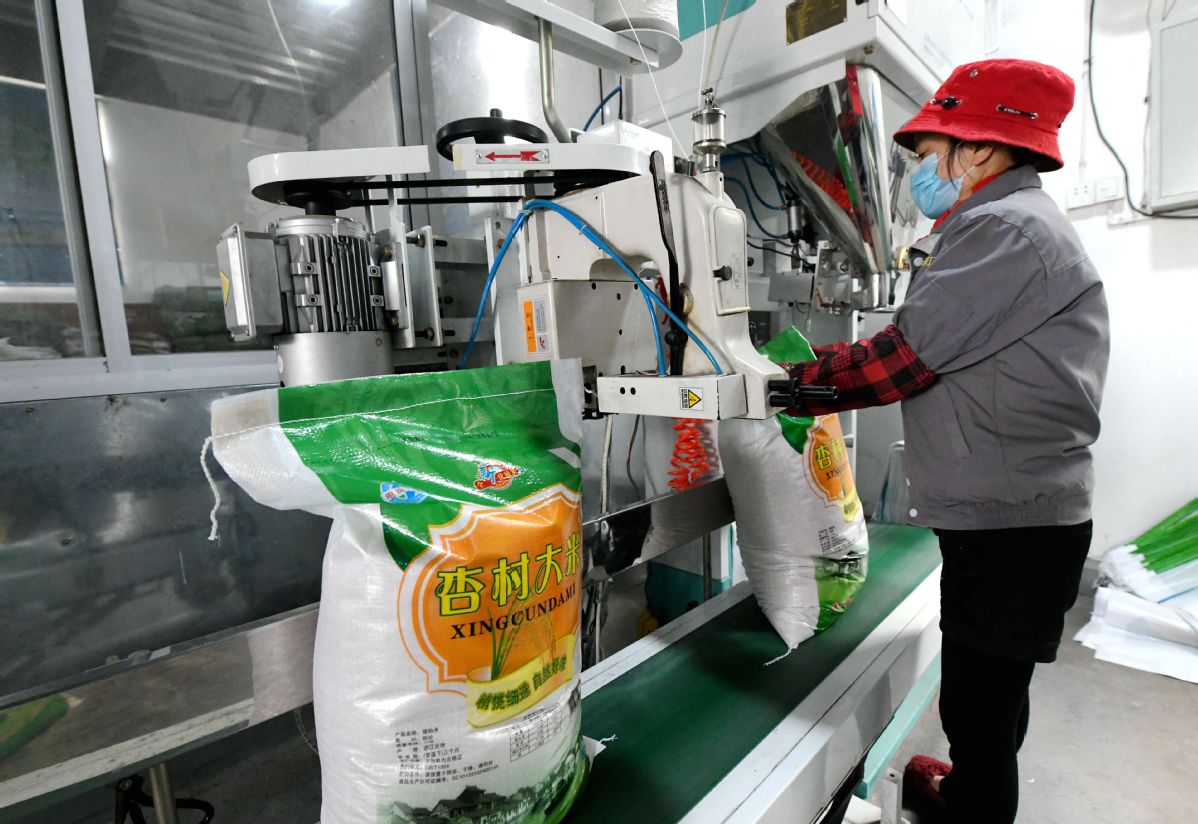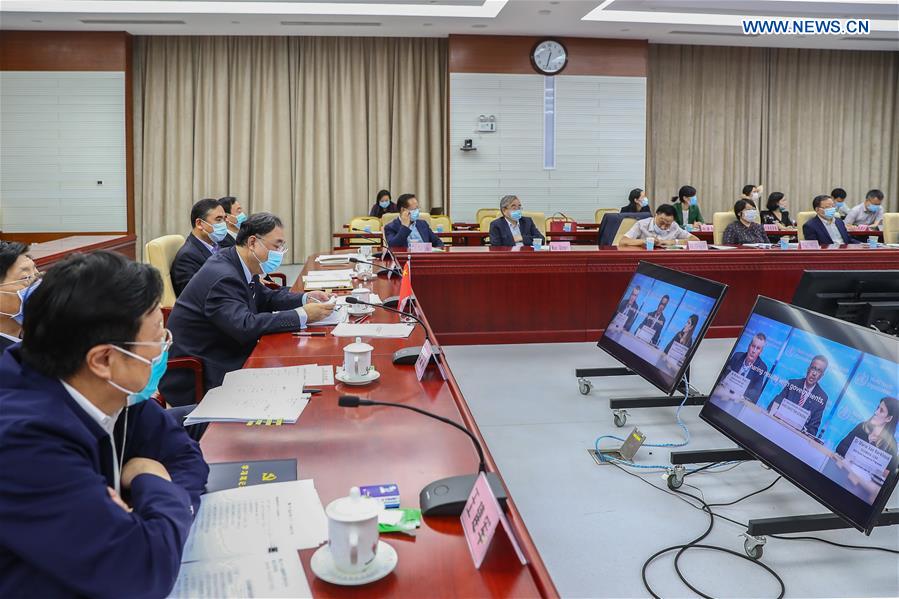Experts say benefits of improved links with Int’l organizations
May 24 , 2020
A worker packages rice at a grain processing mill in Xianju county, Zhejiang province. [Photo by Wang Huabin/For China Daily]
It is essential for China to have more communication and cooperation to better establish and maintain a good relationship with international organizations, according to officials and experts.
This will eventually benefit both the country and the world, they said.
China has been actively taking part in global affairs by working with multiple international organizations, and it would be good to see more extensive cooperation in the future, said Zhang Zhongjun, assistant representative of the United Nations Food and Agriculture Organization’s China office.
The FAO has always advocated international cooperation, globalization and multilateralism, as these are of great importance to agricultural development and food safety, he said, adding that China can contribute more of its power by learning from and sharing with the world.
“Since China’s reform and opening-up in 1978, the country has obtained many advanced agricultural management techniques and concepts from (around) the world,” Zhang said. “Meanwhile, the country has also shared much of its experience and technology with other developing nations through South-South cooperation.”
The term refers to a broad framework for collaboration among developing countries, with the aim of tackling issues such as food insecurity, poverty and sustainable agriculture.
In 2009 and 2014, respectively, China donated $30 million and $50 million to the FAO to help carry out South-South cooperation in agriculture. It has also sent groups of experts and technicians to countries in Southeast Asia, Africa and South America.
In view of this, Zhang said the FAO hopes that China and the agency can launch more joint projects.
“At the same time, by working with international organizations, China and the world can promote agricultural development, improve global food security, and increase food production,” he said.
Zhang said that by continuing to learn from other countries, China has found “a way to maintain a good relationship with international organizations”.
“China can keep improving itself during this learning (process), while the FAO can introduce more of China’s technical experience to others,” he said, adding that this is a healthy communication and interaction process that will benefit the entire world.
Chinese partners should also try to follow international standards and respect local culture and laws when cooperating with countries around the world, Zhang added.
Beate Trankmann, resident representative of the UN Development Programme China, praised the country’s interaction with international organizations in dealing with the novel coronavirus pandemic.
“The government’s willingness to receive international advice and expertise, in particular from the World Health Organization, has been instrumental in advancing knowledge of this new virus and will help all nations protect their people and control the outbreak,” she said.
As the first country to face the crisis, Trankmann said China has much experience that the international community can use and learn from.

Delegates attend the 73rd World Health Assembly via video link in Beijing, capital of China, May 18, 2020. Due to the current COVID-19 pandemic, the 73rd session of the World Health Assembly, scheduled from May 18 to 19, was held virtually. [Photo/Xinhua]
The pandemic has also served as a strong reminder of the importance of international solidarity, she added.
Wang Huiyao, president of the Center for China and Globalization, a think tank based in Beijing, said that in addition to sharing its experience, China could participate more in promoting reform and innovation by playing a leading role as a member of international organizations.
For example, he said that as a major power, the country should actively voice its concerns and proposals-especially from the perspective of a developing nation-in discussions involving reform of the World Trade Organization.
Wang also said China could launch an innovative cooperation model by bringing different international organizations under the same framework.
“China could help bring together the World Bank, the Asian Infrastructure Investment Bank, the Asian Development Bank and other relevant organizations to form a group that can jointly promote development of the Belt and Road Initiative,” he said.
During interaction with international organizations, Wang said China faces the crucial challenge of how to better communicate with the world to reach mutual understanding.
“We may need to improve the way we are telling our stories,” he said. “It would be better if we can use a language that has been widely accepted by the world, or if we can integrate our stories into the international context to find the greatest common divisor and common language with the world.”
He also suggested using non-governmental organizations, such as think tanks, to address global misunderstanding.
Babatunde Ahonsi, representative of the United Nations Population Fund in China, said he expects the country to actively communicate and work closely with the agency to reach more goals.
The fund has advised China and other member countries to make more progress on population-related issues, which form part of the UN’s Sustainable Development Goals, Ahonsi said.
He added that China passed the Domestic Violence Law in 2016, which the UN fund is helping to implement effectively to prevent and address gender-based violence.
“However, the world still has a long way to go in terms of ensuring rights and choices for all, as envisioned under the 1994 United Nations International Conference on Population and Development Programme of Action,” Ahonsi said.
He added that the agency hopes that China and other member states can continue communicating with each other.






